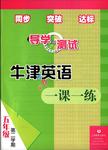题目内容
7.A long-term American study shows the importance of early education for poor children.The study is known as the Abecedarian Project.It involved more than one-hundred young children from poor families in North Carolina.Half of the children attended an all-day program at a high-quality child-care center.The center offered educational,health and social programs.Children took part in games and activities to increase their thinking and language skills and social and emotional development.The program also included health foods for the children.
The children attended the program from when they were a few weeks old until the age of five years.The other group of children did not attend the child-care center.After the age of five,both groups attended public school.
Researchers compared the two groups of children.When they were babies,both groups had similar results in tests for mental and physical skills.However,from the age of eighteen months,the children in the educational child-care program did much better in tests.
The researchers tested the children again when they were twelve and fifteen years old.The tests found that the children who had been in the child-care center continued to have higher average test results.These children did much better on tests of reading and mathematics.
A few years ago,organizers of the Abecedarian Project tested the students again.At the time,each student was twenty-one years old.They were tested for thinking and educational ability,employment,parenting and social skills.The researchers found that the young adults who had the early education still did better in reading and mathematics tests.They were more than two times as likely to be attending college or to have completed college.In addition,the children who received early education were older on average,when their first child was born.
The study offers more evidence that learning during the first months and years of life is important for all later development.
The researchers of the Abecedarian Project believe their study shows a need for lawmakers to spend money on public early education.They believe these kinds of programs could reduce the number of children who do not complete school and are unemployed.
77.The Abecedarian Project has lastedC.
A.almost one year
B.about five years
C.more than 20 years
D.no more than 15 years
78.Those who had been in the child-care centerA compared with those who hadn't.
A.have their children at later ages
B.get more help from other people
C.have no parenting or social skills
D.are poorer at reading and mathematics
79.What don't we know about the Abecedarian Project after reading the text?D
A.What the children learned at the child-care center.
B.How important early education is for poor children.
C.How many children are involved in the Abecedarian Project.
D.Whether lawmakers will spend money on public early education.
80.The study of the Abecedarian Project shows that early educationC.
A.costs a lot of money
B.leads to a lower birthrate
C.can improve the life of poor children
D.is not important for later development.
分析 本文属于说明文阅读,作者通过这篇文章主要向我们描述了研究发现,早期教育十分重要,它可以改善孩子未来的生活.
解答 77.C.推理判断题.根据文章A few years ago,organizers of the Abecedarian Project tested the students again.At the time,each student was twenty-one years old可知这项研究已经超过20年;故选C.
78.A.细节理解题.根据文章In addition,the children who received early education were older on average,when their first child was born可知曾在儿童护理中心的孩子比不在的孩子更晚生育;故选A.
79.D.细节理解题.根据最后一段The researchers of the Abecedarian Project believe their study shows a need for lawmakers to spend money on public early education可知研究发现立法者应该将钱花再早期教育上,但事实是否这样,文章没有提及;故选D.
80.C.推理判断题.根据文章The researchers found that the young adults who had the early education still did better in reading and mathematics tests.They were more than two times as likely to be attending college or to have completed college可知早期教育可以改善儿童的生活;故选C.
点评 考察学生的细节理解和推理判断能力,做细节理解题时一定要找到文章中的原句,和题干进行比较,再做出正确的选择.在做推理判断题不要以个人的主观想象代替文章的事实,要根据文章事实进行合乎逻辑的推理判断.

 导学与测试系列答案
导学与测试系列答案 新非凡教辅冲刺100分系列答案
新非凡教辅冲刺100分系列答案For the past two years,it's gone like this:
My question:"Have you thought of taking an advanced placement class (高阶课程)so that you can earn college credit?"
Nicole's(40)D:"No,I'm not interested in that."
Two months ago,she was(41)Dto a great university.However,I was still the mother having a(42)Ctime letting go.The night before the introductory meeting of the university,I had read the course catalog carefully and(43)Bcourses which I thought looked good.We met on the campus the next afternoon,and Nicole's face(44)A with excitement."I have had my entire schedule figured out,"she said."Already?"I was astonished,(45)Bshe should have discussed it with me.I examined the schedule.Nicole hadn't taken a (an)(46)D one of the courses I had suggested.Every course she had chosen(47)C suited her interests.Just then I saw a mature,capable young woman with a(48)Amind and the ability to shape her future.She no longer needed her mother's(49)Bevery thing for her.I felt proud,though still a bit (50)C.
I(51)Athe lessons carefully.Nicole has struggled to learn over the past 18 years:(52)C,sympathy,and hard work.There have been a few holes along the way.(53)C,she is well-equipped and eager to(54)A the future.The next step,I recognized,was mine to take:giving my daughter and myself the (55)Dwe both needed.
| 36.A.left | B.right | C.either | D.each |
| 37.A.onto | B.up | C.back | D.out |
| 38.A.keep | B.refuse | C.taste | D.bear |
| 39.A.embarrassing | B.relaxing | C.lively | D.beautiful |
| 40.A.comment | B.word | C.concept | D.response |
| 41.A.received | B.invited | C.treated | D.accepted |
| 42.A.good | B.great | C.hard | D.easy |
| 43.A.taken | B.underlined | C.offered | D.read |
| 44.A.lit up | B.built up | C.turned up | D.made up |
| 45.A.imagining | B.thinking | C.hoping | D.adding |
| 46.A.only | B.just | C.even | D.single |
| 47.A.mostly | B.hardly | C.exactly | D.slightly |
| 48.A.sharp | B.normal | C.different | D.same |
| 49.A.encouraging | B.deciding | C.disagreeing | D.agreeing |
| 50.A.anxious | B.excited | C.sad | D.tense |
| 51.A.reviewed | B.observed | C.checked | D.studied |
| 52.A.ability | B.honesty | C.responsibility | D.beauty |
| 53.A.Therefore | B.Instead | C.Still | D.Besides |
| 54.A.hug | B.discover | C.determine | D.lead |
| 55.A.character | B.strength | C.relief | D.independence |